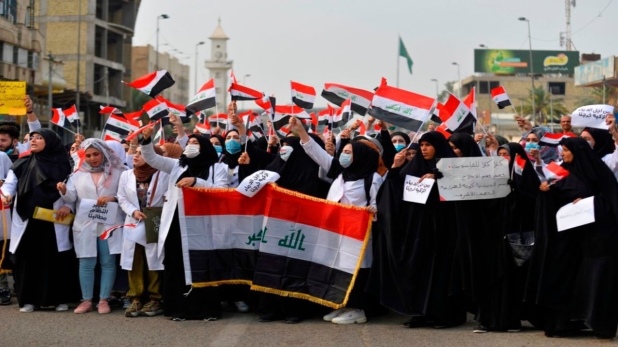As per the new law, independent candidates have a much better chance of being elected to parliament. A law of this kind was one of the key demands of the protesters who have been on the streets since October 1
27 Dec 2019
Iraq’s parliament passed a new electoral law on Tuesday, December 24, making it easier for independent candidates to win parliamentary elections. The new law was one of the key demands of those participating in mass protests, which broke out on October 1. The public anger is directed against rampant corruption, extreme poverty and unemployment rates, the abysmal state of public services, and other political and economic issues. Meanwhile, severe disagreements continue over who should be the next prime minister with president Barham Salih refusing to accept a nomination made by a parliamentary group.
The new law divides Iraq’s eighteen provinces into several electoral districts and assigns one member of parliament for every 100,000 Iraqis. It does away with the old system where parties used to run on unified lists. By running on unified lists, political parties were able to win all the seats in a particular province. This has been replaced in the new system, as voters will now elect individual MPs. The new law also allocates at least a quarter of the parliamentary seats to women, and establishes a quota for religious minorities, including Christians and Yazidis.
The new was opposed by a section of Kurdish and Sunni Arab legislators, who boycotted the meeting of the parliament on Tuesday. In contrast, popular Shia cleric Muqtada al-Sadr welcomed the new law, saying that “it will get rid of all corrupt parties.”
Meanwhile, president Barham Salih has reportedly threatened to resign rather than accept the nomination of the governor of Basra, Asaad al-Eidani, for the post of prime minister. Al-Eidani was nominated by the Iran-backed Binaa bloc. This follows continuing protests with the demand of a complete restructuring of the political system. Many protesters have been seeking an alternative to the current political class, and calling for an independent candidate to take over the prime minister’s post.
According to the Iraqi High Commission for Human Rights, at least 496 people have been killed and more than 25,000 injured since the massive protests began on October 1.
No comments:
Post a Comment